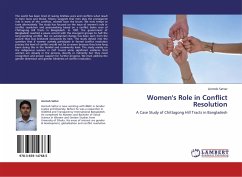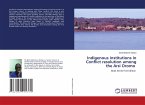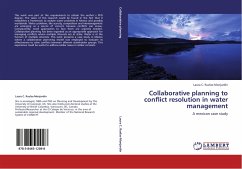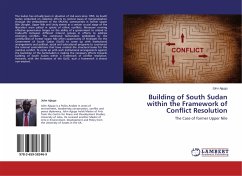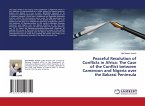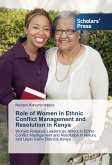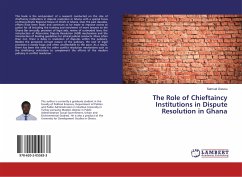The world has been tired of seeing limitless wars and conflicts what result in mere tears and blood. History suggests that men play the protagonist role in most of the conflicts, women bear the brunt. We now tempt to taste alternatively. The study has focused on the issue of women s role in conflict resolution and peacemaking based on a conflict laden area of Chittagong Hill Tracts in Bangladesh. In 1997, the government of Bangladesh reached a peace accord with the insurgent groups to halt the long-standing conflict. But no substantial change has been seen from the accord that was brokered exclusively by men. The study delved into the question that if women actively participate in formal conflict resolution process the level of conflict would not be so severe because they have long been doing this in the familial and community level. The study mainly on the indigenous women in CHT found some significant evidence that women are already in the process, directly or indirectly but they need recognition and proper support for further progress. We must address the gender dimension and gender blindness of conflict resolution.
Bitte wählen Sie Ihr Anliegen aus.
Rechnungen
Retourenschein anfordern
Bestellstatus
Storno

